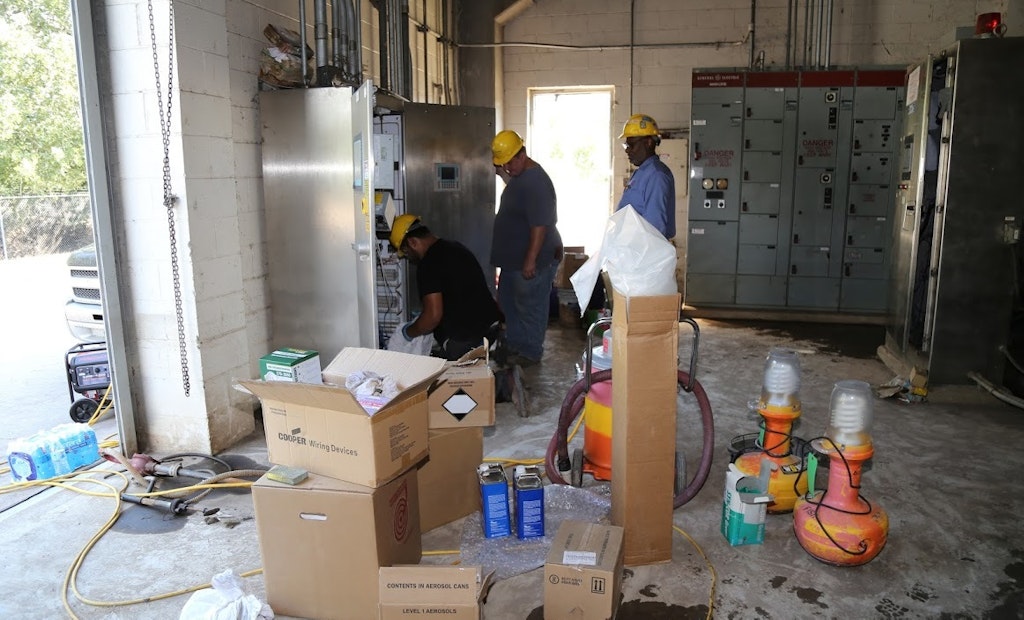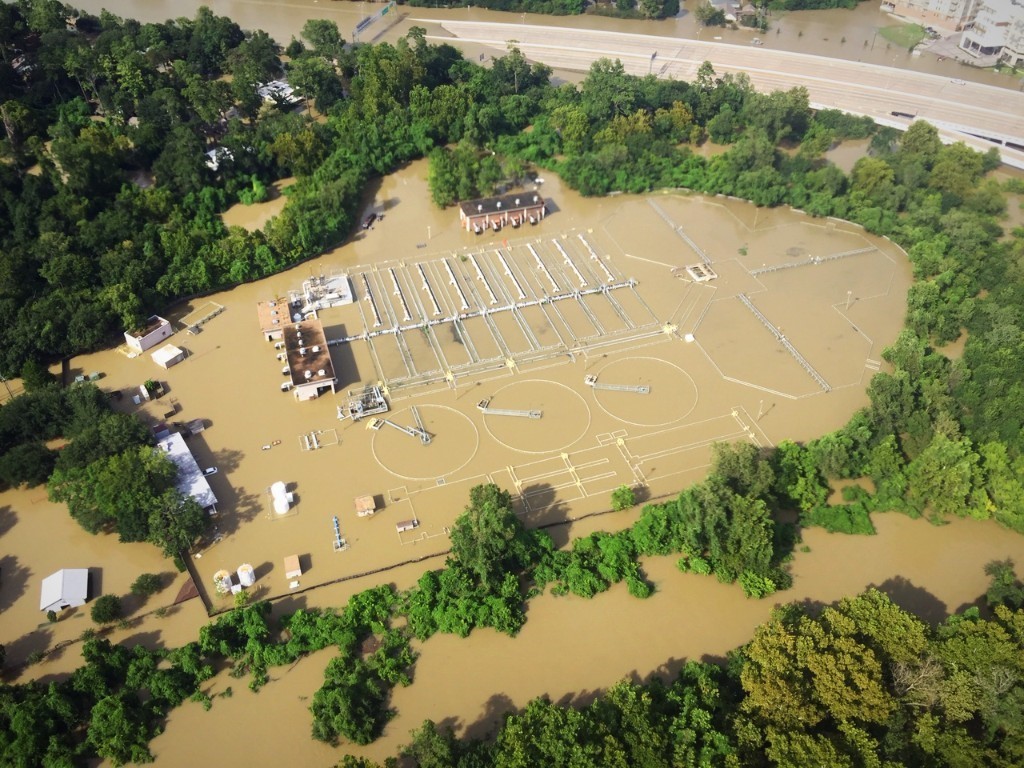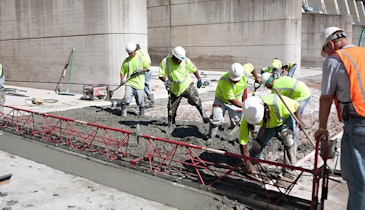Interested in Infrastructure?
Get Infrastructure articles, news and videos right in your inbox! Sign up now.
Infrastructure + Get AlertsFive months after Hurricane Harvey hit Texas’ Gulf Coast, the city of Houston is still assessing the storm’s full impact on water and wastewater infrastructure.
“We have engaged our consulting community to help us go through the detailed assessments on pumps, wiring, switchgears, and things like that,” says Yvonne Forrest, director of Houston Water. “We did inspections for all of the above-ground infrastructure and are now doing that for the piping, distribution, and underground system.”
All potable water production has been restored and full repairs to the wastewater treatment system are nearly complete. That can’t be said for all the water and wastewater facilities impacted by Harvey. According to the latest numbers from the Texas Commission on Environmental Quality, 15 are inoperable or still dealing with some issues.
“We were struggling to meet the permit requirements immediately after the storm because some of the equipment was damaged and we had to wait for the replacement parts to come in,” Forrest says.
The assessment of the full system is ongoing. Following the receding of the floodwaters, an initial assessment was undertaken, with many photos taken. Houston Water is using the opportunity to consider better places to locate or relocate infrastructure, determine which materials can better withstand hurricanes and floodwaters, and whether certain sections should be repaired now or moved.
“We want to look at our entire system,” says Forrest. “Our wastewater system is made up of 40 treatment plants and over 380 lift stations. Our final assessment of damages and the cost of repairs will help us make the decisions on what is to be repaired, replaced, and capacities that can be transferred to another part of the system. We will definitely look at the economics and the use of ratepayer money.”
Surviving Harvey
Overall, Houston Water was able to weather the storm without significant issues. In fact, the utility might have gotten through it largely unscathed had Harvey been a more typical storm that moved through quickly instead of settling and dumping record amounts of rain on the area. Experiencing the damage caused by the strong winds of Hurricane Ike in 2008 meant Houston Water was prepared with generators for a backup power supply.
“We had all the people and equipment in place, but we didn’t have any of the significant wind and power outages with Harvey,” says Forrest. “With the sustained rain there were parts of Houston that got over 50 inches of rain, and we had debris — branches, garbage, etc. — that would collect on the street and get into the system. The official number from the weather service was 51.66 inches of rain. Houston has a large, flat topography, so it resulted in a lot of mud.
“Many people that have not experienced a flood think that it is just the water,” she adds, “but when the water recedes, it’s just this mud and muck layer that’s washed into roads and neighborhoods.”
Fences around water and wastewater plants served as a barrier to an extent, but the water was so high in certain areas that it still caused problems.
“For the drinking water side, we had one plant that began to have floodwater come into the operating area,” says Forrest. “The other two large drinking water purification plants were fine, but access to them was flooded in. Our water system has generators and so were prepared — the system never lost power. The chemical tanks were full for continued operating for a substantial period of time. We provided safe drinking water throughout the duration of the hurricane.
“We had a lot of areas that were affected by the rain,” she adds. “Wastewater plants are built close to discharge points on bayous and waterways, so we had areas that were impacted due to their location. During the storm, the whole wastewater system was operational. We had a section on the northeast side that experienced heavy floodwaters that inundated the facility there, but we were able to shift treatment to other facilities. Afterward we had some flood control reservoirs in the southwest area of Houston that were inundated, and they were completely unavailable to us during the aftermath for about 10 days.”
Players in the oil and gas industry pitched in to help Houston Water on the west side of the city, where the Energy Corridor is located, home to many energy companies’ facilities.
“BP, Shell and Conoco-Phillips reached out early and said, ‘What can we do to help you so that you can bring people back to work?’” says Forrest. “They helped us resource large pumps and find electrical equipment and the vendors to secure it. We would have found it, but maybe it would have been a little slower. Their help was amazing. I may only need such equipment once every four years, but it is part of their lifeblood and they helped me secure things rapidly."
Forrest says that Harvey’s effects will be studied for many years for lessons learned that can be used locally as well as shared with other jurisdictions.
“We’re still learning things from Hurricane Katrina and the inundation of New Orleans and Hurricane Sandy in regards to resiliency and preparation,” she says. “Hopefully we don’t have to relearn those lessons. This storm was unprecedented and we were not expecting the sustained rain or volume.”
Houston Water is sharing information on disaster management and building better systems through various industry organizations, conferences, peer-to-peer message boards, and personnel networks.
“You will see more national studies on hurricanes, resiliency and recovery, and preparedness,” Forrest says.
Alanna Reed, chief communications officer for Houston Public Works, echoes the sentiment.
“We’re all about collaboration, teamwork, and helping others in the community,” she says. “That’s what got us through Harvey and hopefully we can pay it forward and help other communities.”







